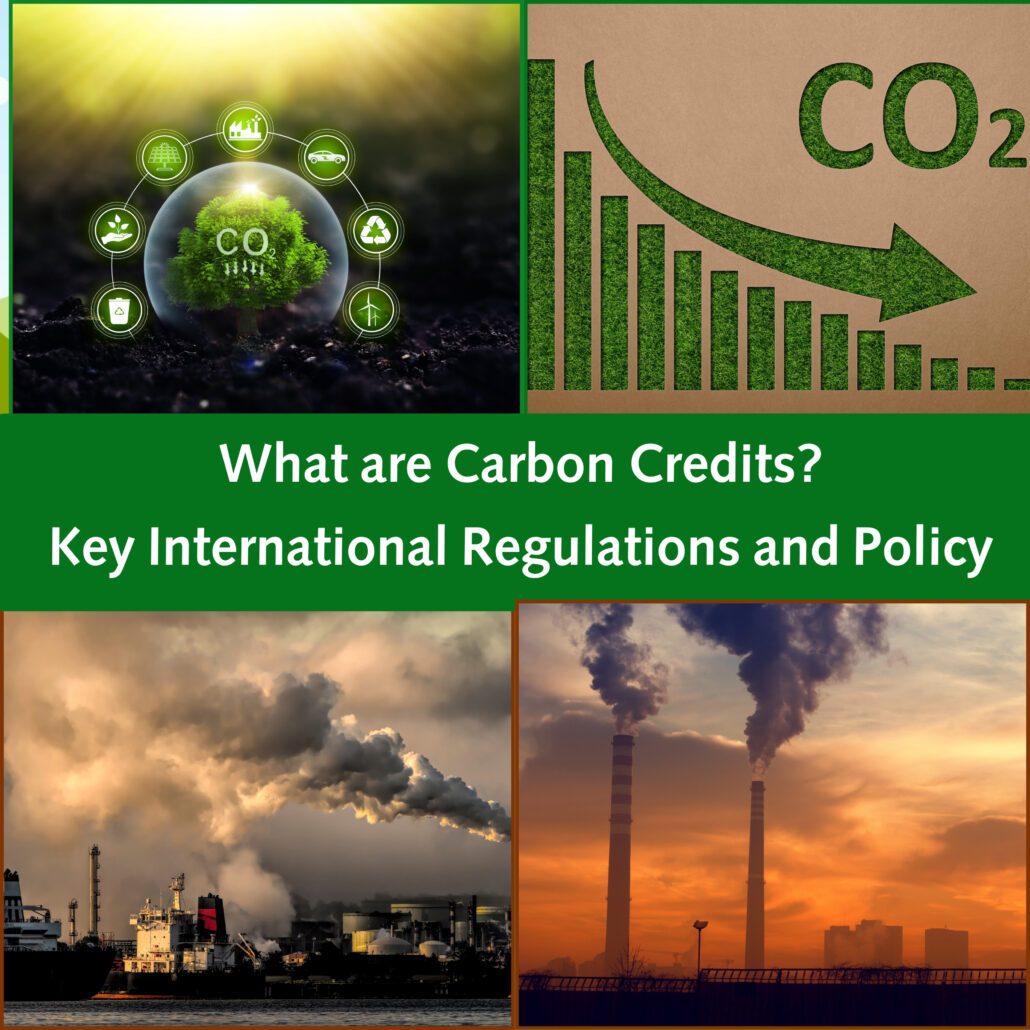
Carbon credits are a critical tool in the global effort to combat climate change by reducing carbon dioxide (CO2) emissions. A carbon credit is a unit of measurement representing the removal or prevention of one metric ton (1,000 kg) of CO2 or equivalent greenhouse gases from entering the atmosphere. These credits are part of a broader strategy called carbon offsetting, which compensates for emissions by supporting projects that reduce or sequester an equivalent amount of CO2.
International regulations governing carbon offsetting include frameworks established under the United Nations Framework Convention on Climate Change (UNFCCC). The primary frameworks are as follows:
Key International Regulations and Policy Documents
- Kyoto Protocol:
- Clean Development Mechanism (CDM):
- Overview: The CDM allows industrialized countries to invest in emission reduction projects in developing countries and earn certified emission reduction (CER) credits.
- Kyoto Protocol to the United Nations Framework Convention on Climate Change
- CDM Website: UNFCCC CDM
- Paris Agreement:
- Article 6:
- Overview: Article 6 establishes new market mechanisms for carbon trading and offsetting, promoting international cooperation in emission reductions.
- Paris Agreement
- Article 6.2 and Article 6.4 Text: The Paris Agreement includes frameworks for cooperative approaches (Article 6.2) and a mechanism to contribute to the mitigation of greenhouse gases and support sustainable development (Article 6.4).
- Article 6 Guidance: UNFCCC Article 6 Guidance
How Carbon Credits Fit into International Regulation
- Verification and Certification: Projects generating carbon credits must undergo verification and certification to ensure the emission reductions or sequestration are real, measurable, and additional.
- Verification Standards: CDM Verification and Certification
- Trading and Compliance: Carbon credits can be traded in international carbon markets, allowing countries and companies to comply with their emission reduction commitments.
- Carbon Markets Overview: UNFCCC Carbon Markets
Conclusion
Carbon offsetting through credits is regulated under international frameworks like the Kyoto Protocol and the Paris Agreement, managed by the UNFCCC. These frameworks ensure that carbon offset projects meet strict standards for environmental integrity and contribute effectively to global emission reduction goals.